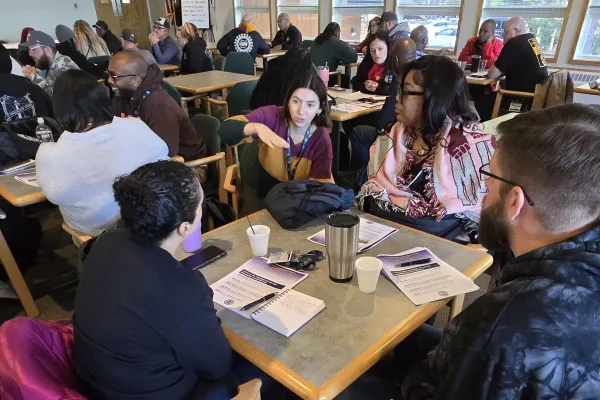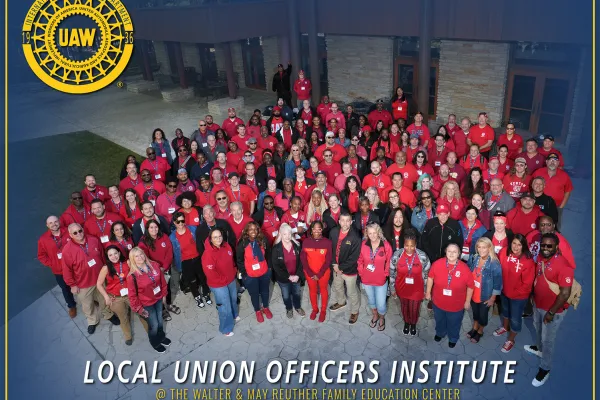
AUTOWORKERS ACROSS THE U.S. ARE JOINING THE UAW. ARE YOU READY TO STAND UP AND WIN YOUR FAIR SHARE?
Volkswagen workers just made history and voted UAW YES! It’s time for autoworkers to win a better life at Toyota, Honda, Hyundai, Tesla, Nissan, BMW, Mercedes-Benz, Subaru, Mazda, Rivian, Lucid, Volvo and beyond.



We're Fighting For You
Upcoming Events
UAW Blog
-
Statement from UAW President Shawn Fain on the Killing of Alex Pretti
The UAW stands in solidarity with the family and loved ones of our fallen union brother Alex Pretti and all those standing up for justice in Minneapolis and beyond.
The post Statement from UAW President Shawn Fain on the Killing of Alex Pretti appeared first on UAW | United Automobile, Aerospace and Agricultural Implement Workers of America.
-
UAW Announces Major Michigan Candidate Endorsements for 2026
In a decision led by a member-elected board of the UAW’s Community Action Program (CAP) in Michigan, the UAW is announcing two major endorsements for statewide races ahead of a critical year for defending workers’ rights.
The post UAW Announces Major Michigan Candidate Endorsements for 2026 appeared first on UAW | United Automobile, Aerospace and Agricultural Implement Workers of America.
-
UAW Statement in Solidarity with the Fight for Justice in Minnesota
The UAW stands in solidarity with the people of Minnesota, including hundreds of UAW members, who are standing up and fighting back against the federal government’s abuses and attacks on the working class.
The post UAW Statement in Solidarity with the Fight for Justice in Minnesota appeared first on UAW | United Automobile, Aerospace and Agricultural Implement Workers of America.
-
UAW Region 2B, Local 5242 Toledo Public Schools Budget Shortfalls
Toledo Public Schools are facing serious budget shortfalls due to federal reductions to the U.S. Department of Education and subsequent state-level funding changes under the Fair School Act. In response, the district cabinet has proposed layoffs impacting Toledo Federation of Teachers (TFT) employees in an effort to address a growing budget deficit. Notably, the leadership […]
The post UAW Region 2B, Local 5242 Toledo Public Schools Budget Shortfalls appeared first on UAW | United Automobile, Aerospace and Agricultural Implement Workers of America.
-
UAW Region 2B, Local 2192 Lorain County Workers Vote to Authorize a Strike
UAW Region 2B, Local 2192 Public Sector Workers at Lorain County Jobs & Family Services in Ohio authorized a strike vote with 86% YES!
The post UAW Region 2B, Local 2192 Lorain County Workers Vote to Authorize a Strike appeared first on UAW | United Automobile, Aerospace and Agricultural Implement Workers of America.








